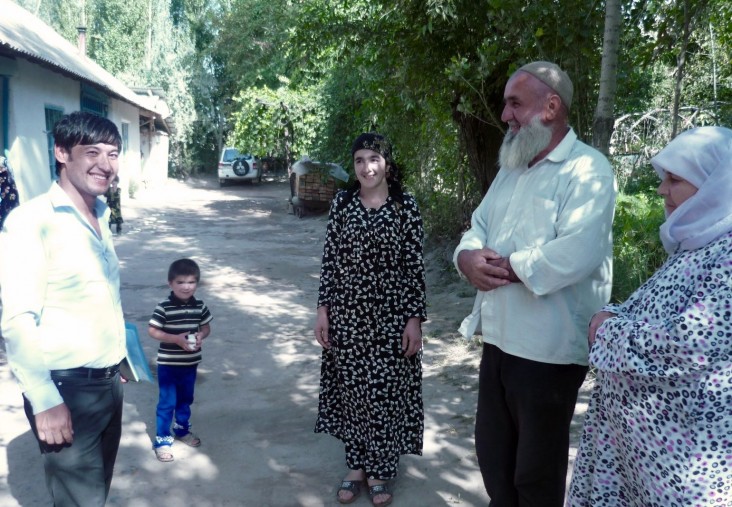
March 2017—In 2012, Dr. Qudratullo Qodirov was one year out of medical school and had been offered a position as head of a tuberculosis (TB) center in the Rash district, some 200 kilometers from Tajikistan’s capital city of Dushanbe.
“I was hesitant to take the job because the TB center was in terrible condition, with only two staff members working in two small, unheated and badly equipped rooms,” he remembers.
Fast forward to 2016. The center has been propelled into an exceptional TB diagnostic and treatment facility under Qodirov’s leadership, with support from local authorities, mosques and the USAID TB Control Program.
“The first thing I had to do was to improve the center’s TB diagnostic capacity, find qualified staff, and get funding for TB prevention and control,” recalls Qodirov. “Thanks to the assistance and guidance provided by USAID and the advocacy of our mayor’s office, TB funding from the district budget increased by 20 percent in 2013.” The additional funding enabled the young doctor to hire nine additional staff members, including lab technicians, and renovate the TB facility with best infection control practices in mind.
Like many other areas throughout Tajikistan, the Rasht district has a high seasonal labor migration and a high incidence of TB and its drug-resistant forms. USAID is committed to reducing the burden of this disease together with its national partner, the Tajikistan Ministry of Health and Social Protection of Population.
Local authorities and religious leaders were instrumental not only in providing funding for the TB center but also in emphasizing the importance of TB prevention, detection and care within their communities. Moreover, the mayor’s office provided food, transportation assistance and exemptions for taxes and electricity to more than 200 TB patients in need districtwide.
USAID collaborated with international and domestic partners to introduce GeneXpert technology for speedy and accurate TB diagnosis, which allows for early initiation of TB treatment—crucial to prevent further spread of the disease. The program also provided regular staff training and mentoring.
Together these efforts resulted in significantly improved TB case detection and treatment in the district. “Patients no longer have to travel to Dushanbe for TB care,” declares Qodirov. “We have the capacity to successfully manage their treatment from early diagnosis to complete cure at our TB center. Today, more than 80 TB and drug-resistant patients are receiving treatment at our TB clinic. Two years ago, we were able to provide this support to only 35 TB patients.”
Through its previously implemented TB Care 1 Project and now through the TB Control Program, USAID has been providing technical support to communities in the Rasht district and other regions where the rates of TB are the greatest. In Tajikistan’s remaining seven districts, the program will continue to build networks in which health care providers, local communities, and patients work together to improve TB prevention and treatment outcomes. The program runs from September 2014 to August 2019.
LINKS
Follow @USAIDCtrAsia, on Facebook, on Flickr, on YouTube







Comment
Make a general inquiry or suggest an improvement.